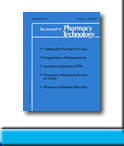 |
 |
EVALUATION OF
EPTIFIBATIDE TREATMENT IN PATIENTS UNDERGOING PERCUTANEOUS CORONARY
INTERVENTION
Marwan T Sheikh-Taha and Warren L
Strickland
To request full article click here.
BACKGROUND: Abrupt closure and restenosis remain serious and costly consequences of coronary angioplasty procedures. Eptifibatide (Integrilin) has been shown to decrease the rate of combined endpoint of death, new myocardial infarction, or the need for urgent intervention in this setting. Platelet aggregation is inhibited by eptifibatide in a dose-dependent manner, with more than 80% receptor occupancy required to prevent thrombus formation.
OBJECTIVE: To evaluate the safety and efficacy of a shorter duration of treatment with eptifibatide in low-risk patients undergoing percutaneous coronary intervention.
METHODS: We compared low-risk patients undergoing percutaneous coronary intervention who received either conventional eptifibatide dosing or a bolus dose that was sufficient to produce more than 80% platelet inhibition. All patients were followed for major adverse cardiovascular events (MACE) for 90 days after the procedure. MACE complications included death, myocardial infarction (defined as elevation of the creatine kinase-MB fraction at least 3 times the upper limit of normal or new Q-waves in 2 electrocardiographic leads), or any treatment for recurrent angina (percutaneous transluminal coronary angioplasty, stent placement, or coronary artery bypass grafting). Safety was assessed by the incidence of bleeding and thrombocytopenia.
RESULTS AND CONCLUSIONS: None of the patients in either study group had a MACE or thrombocytopenia during the follow-up period. Patients who received a conventional eptifibatide dose had a higher incidence of minor bleeding. It appears that, in low-risk patients, a shorter duration of treatment with eptifibatide may prevent the ischemic complications of percutaneous coronary intervention.
J Pharm Technol 2002;18:316-8.
To request full article click here.
|
|
|
||
|

